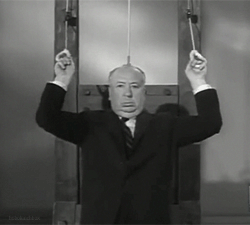http://www.vice.com/read/miners-just-took-43-police-officers-hostage-in-bolivia
On Monday night, outside of Cochabamba, Bolivia, a conflict between police and miners protesting a new mining law left two miners dead and 50 people injured. The miners died of bullet wounds to the head. Forty-three policemen were also taken prisoner by the miners. The miners wielded dynamite against the armed police forces, though it’s still unclear who provoked the fight.
Before taking hostages, the miners had organized roadblocks across the country against a new mining law that would give the administration of President Evo Morales oversight of private tin, silver, and zinc miners’ transactions with private or foreign companies. (The Bolivian government also owns enormous public mines, which would not be effected by this aspect of the law.) The Morales administration wants to maintain oversight of sales and mining development in the private sector in order ensure that the resources benefit the country, rather than simply enrich private and foreign investors. The miners protesting on Monday all work in the private sector and, curiously, aren’t part of a leftist attempt for collective control of their mines—they simply want the right to be able to sell the minerals they extract to any person or company they please.
Congressman José Antonio Yucra of the Movement Toward Socialism (MAS, the party led by President Morales) explained to the press that “there is great interest in million-dollar contracts that the cooperativist [private miners] would have with foreign [companies]” if the government did not regulate the industry. But the fight over the mining law is part of a much wider conflict across the Andes and Latin America. Who profits from the extraction of natural resources? Who pays when mining or oil exploration harms the environment and local communities? To what extent are local communities consulted about resource extraction that destroys their land, water, and livelihoods? Despite leftist rhetoric about protecting the environment and working on behalf of the region’s downtrodden, the presidents of Bolivia, Peru, and Ecuador, among others, are charging ahead with destructive mining, gas, and oil industrialization at a rapid pace.
Mining of copper, lead, and zinc in Peru, for example, has been booming, and alongside this boom, indigenous and agrarian communities have fought against the destruction of their land, water, and homes. In Ecuador, protesters against extractive industries have been criminalized as the government moves forward with oil and mining projects. A recent lawsuit by Ecuadorean villagers against Chevron made it clear who pays and who profits when a community is devastated to extract natural wealth: Despite allegedly spilling 18 million gallons of toxic wastewater in rural Ecuador, an international court said Chevron did not have to pay to clean up the damage. “We will fight [the lawsuit] until Hell freezes over,” said a Chevron representative. “And then we’ll fight it out on the ice.”
On Monday night, outside of Cochabamba, Bolivia, a conflict between police and miners protesting a new mining law left two miners dead and 50 people injured. The miners died of bullet wounds to the head. Forty-three policemen were also taken prisoner by the miners. The miners wielded dynamite against the armed police forces, though it’s still unclear who provoked the fight.
Before taking hostages, the miners had organized roadblocks across the country against a new mining law that would give the administration of President Evo Morales oversight of private tin, silver, and zinc miners’ transactions with private or foreign companies. (The Bolivian government also owns enormous public mines, which would not be effected by this aspect of the law.) The Morales administration wants to maintain oversight of sales and mining development in the private sector in order ensure that the resources benefit the country, rather than simply enrich private and foreign investors. The miners protesting on Monday all work in the private sector and, curiously, aren’t part of a leftist attempt for collective control of their mines—they simply want the right to be able to sell the minerals they extract to any person or company they please.
Congressman José Antonio Yucra of the Movement Toward Socialism (MAS, the party led by President Morales) explained to the press that “there is great interest in million-dollar contracts that the cooperativist [private miners] would have with foreign [companies]” if the government did not regulate the industry. But the fight over the mining law is part of a much wider conflict across the Andes and Latin America. Who profits from the extraction of natural resources? Who pays when mining or oil exploration harms the environment and local communities? To what extent are local communities consulted about resource extraction that destroys their land, water, and livelihoods? Despite leftist rhetoric about protecting the environment and working on behalf of the region’s downtrodden, the presidents of Bolivia, Peru, and Ecuador, among others, are charging ahead with destructive mining, gas, and oil industrialization at a rapid pace.
Mining of copper, lead, and zinc in Peru, for example, has been booming, and alongside this boom, indigenous and agrarian communities have fought against the destruction of their land, water, and homes. In Ecuador, protesters against extractive industries have been criminalized as the government moves forward with oil and mining projects. A recent lawsuit by Ecuadorean villagers against Chevron made it clear who pays and who profits when a community is devastated to extract natural wealth: Despite allegedly spilling 18 million gallons of toxic wastewater in rural Ecuador, an international court said Chevron did not have to pay to clean up the damage. “We will fight [the lawsuit] until Hell freezes over,” said a Chevron representative. “And then we’ll fight it out on the ice.”






 them dirty face havin ass niguhs
them dirty face havin ass niguhs

